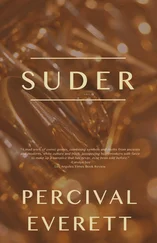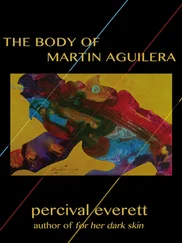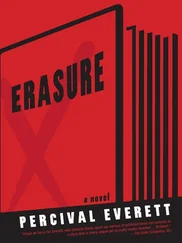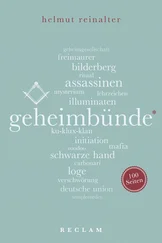“Daddy’s home. Ready to meet him?”
“You bet.”
Maggie led me down to the red-carpeted first floor, through the living room, and to a set of double doors. The doors were dark wood and ominous enough looking, but then she asked again, “Are you ready?”
I wondered now if I was ready, and I don’t recall responding at all when she pushed open both doors. She pulled me into the room that was paneled with dark hardwood like the door and was washed in yellow lamplight. The severed heads of once-large animals covered the walls. There was an actual bearskin rug, the head of which nearly tripped me as I stepped fully inside. Leaning on the edge of his oak desk with the window and late afternoon light behind him, Ward Larkin cut a distinctly unimpressive figure.
“Daddy, this is Not Sidney.”
“Welcome to our home,” Ward said, and though he didn’t say it, I heard the word boy.
“Thank you for having me.” I shook his hand and paid particular attention to the fact that his grip was overly firm and that he was slow to let go.
“What’s your last name?” he asked.
“Poitier.”
“Like Sidney Poitier.”
“Just like that,” I said.
“Any relation?”
“None that I know of.” I looked around at all the heads, reminding myself that they were called trophies. At the leopard, the moose, the lion, the water buffalo, the boar. I settled on the boar and asked, “Did you kill all of these animals?”
A bit of a hush fell about the room, and Ward cleared his throat before saying, “No, I didn’t.” He turned and moved around to the other side of the desk.
“Which trophies are yours?” I asked.
“Hunting,” he said with sort of a laugh.
His laughter put me briefly at ease. “I think hunting is stupid, too,” I said. “I just thought since you had all these heads … ”
“Daddy’s not against hunting,” Maggie said.
I felt ambushed, as no doubt did others in that room. I imagined my head filling the narrow gap between the tiger and the yak.
“No, young man, I believe hunting is a demonstration of man’s primacy in the order of nature.”
“It probably is,” I said, trying hard to sound just slightly more cowed than sardonic.
Still, Ward cut me an unfavoring glance. “I’ve never myself been hunting. I have a bad leg. As well, I have no desire to visit Africa. Do you?”
I’d never thought about it and I certainly didn’t see the question coming and so I said, “I’ve never thought about it.”
“Let me ask you this, do you consider yourself African?”
These were not difficult questions, but they were confusing. However, I was not so young, naïve, and stupid that I could not spot a classic case of self-loathing. “Well, somebody in my family line was from Africa.” I made a show of looking at my brown hands.
“Hmmph. Young man, let me just say this, I’m one-sixteenth black, an eighth Irish, two-fifths Choctaw, one-thirty-second Dutch, a quarter English, and a ninth German.”
I didn’t, nor did I want to, do the math, but it was clear that he was ten-tenths crazy.
“Do you know what that means?” he asked.
I said nothing.
“It means that I’m nothing but an American. I’m no needy minority. Do you understand?”
“I suppose.”
“Well,” Maggie interrupted, “Not Sidney and I have to get going. We won’t be out late.”
“We’ll chat later,” Ward said. “Just the two of us.”

“That went well,” I said, once Maggie and I were well away from her father’s study.
“Daddy can be a little intense,” she said.
“Really? Let me ask you something. Do your parents have a problem with dark-skinned people?”
She was noticeably irked by my question and said, looking away and out the kitchen window, “No, they don’t.”
“Then I guess it’s just me they don’t like.”
“Don’t be silly, they’ve only just met you.”
We put on our jackets and exited the same side door through which we had entered. Maggie fell in behind the wheel of the beige Cadillac. I buckled my belt as she adjusted the seat.
“Big car,” I said.
“Mommy’s old one,” she said. “They kept it so that my sister and I could use it when we’re home from college. Since Agnes has come back to Georgetown for law school, she has her own car.”
“Your sister’s name is Agnes?” I asked. “Are your parents Catholic?”
“No, why?”
“Your names. Margaret and Agnes just seem so Catholic to me.”
“No, we attend the Methodist Church.” The way she said it made me feel unsettled, and it turned out the feeling was rightly placed as she then said, “You’ll like it. We’re going to service Sunday morning.”
I didn’t complain. I didn’t know enough to complain. I’d never been in a church. My mother had specified in her will that there be no church or religious crap, as she put it, associated with her funeral. I stared ahead through the windshield at the oncoming traffic.
“So, where are we going?” I asked.
“We’re going to my friend Lydia’s house. She and I grew up together. We’re like sisters. More like sisters than Agnes and me.”
It crossed my mind to ask and so I did, “Does she know that you’re bringing me along?”
Maggie’s failure to respond could as easily have been her turning her face to me and roaring, “Nooo.” Still, I took no offense, however much I might have been starting to worry. I looked at her profile as she drove the monstrous car through one of the circles. She was almost pretty and I liked that, though I was unsure whether it was the pretty or the almost I more admired.
“It’s okay that you didn’t tell her,” I said, trying to be reassuring, but knowing that I was being a bit sarcastic. “You didn’t tell me about her either.”
“It just slipped my mind,” she said.
Slippery place, your mind, I thought, but said, “The traffic’s not too bad.” Then I asked, “What made you choose Spelman?”
“It’s a good school.”
I nodded.
“Why do you ask that?”
“I don’t know, just seems as if your parents might have a problem with a traditionally black college.”
“What are you trying to say about my parents?”
“I’m not trying to say anything about your parents,” I said. “You mention that your mother is opposed to affirmative action.”
“What’s that have to do with Spelman?”
“Nothing, really.” I looked at the fingers clenched on the steering wheel. “Nothing at all. It was a stupid question.”
“Yes, it was.”
I sought to change the subject and recalled Maggie’s comment about her father and boating. “So, does your father sail?” I asked.
“Does my father what?” She was on the defensive or the offensive, I was unsure which, if in fact there is a difference.
“You mentioned that your father would like the fact that I know a little bit about sailing. So, I assumed that he sails.”
“No,” she said, softening. “Daddy doesn’t sail. He’s afraid of the water, but he likes the idea of it. I know he would love to talk to you about it.”
“So, we’re going to Lydia’s,” I said.
“Yes. A few other friends will be there. Robert will be there. I mentioned Robert. He’s at Dartmouth.”
“The boyfriend who was like a brother,” I said.
She said nothing.
I wanted to say that it all sounded rather Faulknerian to me, but I decided that was mean and perhaps unfair, but I was at least momentarily tickled by something. I suppose my private amusement somehow showed on my face, as I noticed Maggie staring over at me.
Читать дальше













